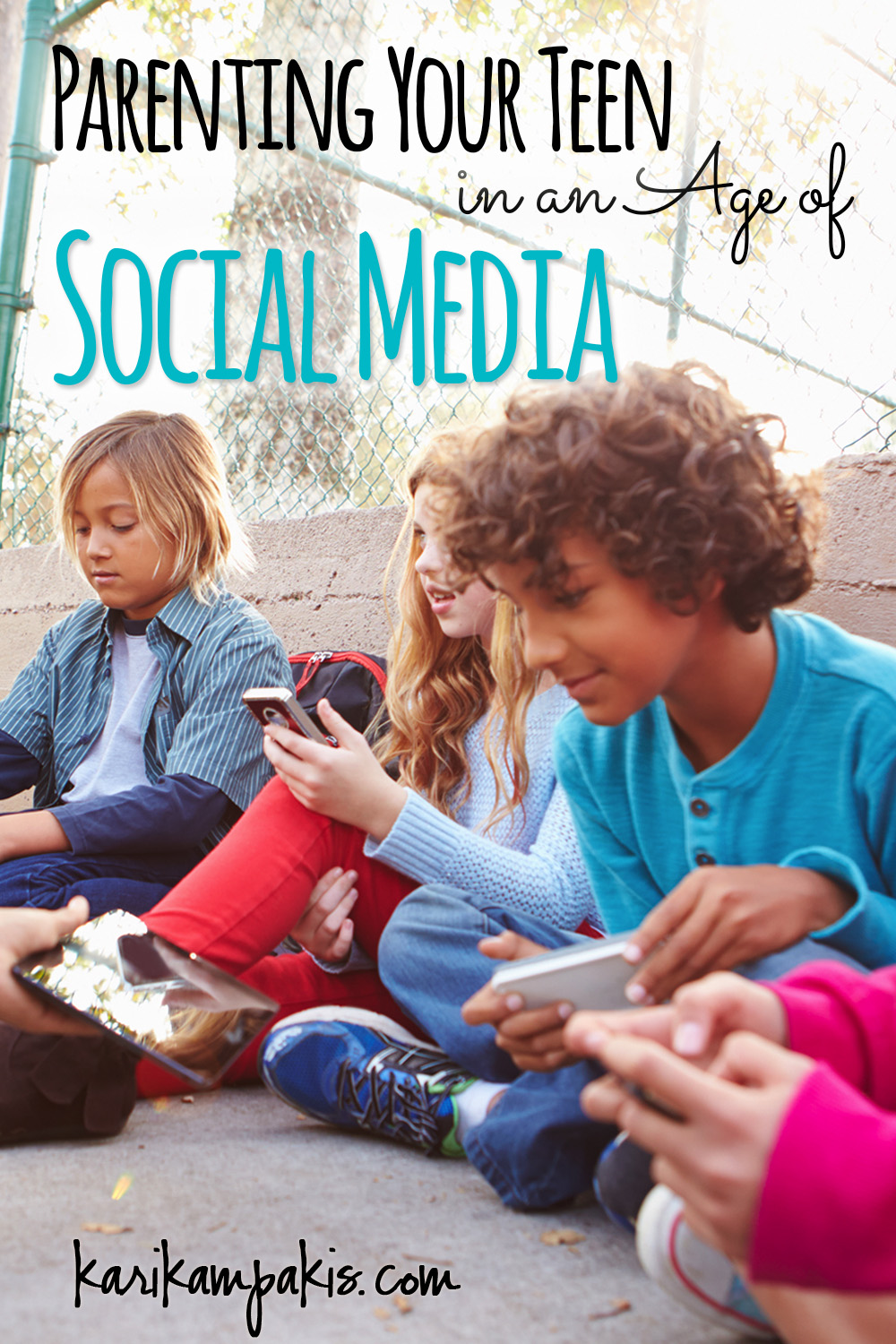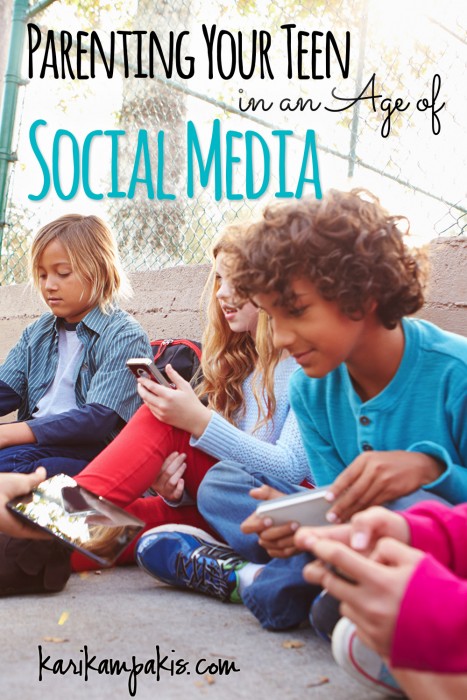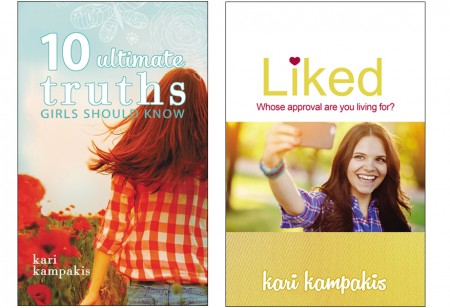Parenting Your Teen in an Age of Social Media

As a writer, I like social media. I can appreciate the benefits it offers because it has opened up doors for writers by offering a quick, easy, and free way to connect with readers.
As a parent, however, I have mixed feelings toward social media. I hear stories about kids who have misused it, been hurt by it, or made a terrible mistake that went viral, and I panic because I’m raising daughters in a generation that’s still figuring out how to be smart with a smart phone.
It’s a complex challenge, to say the least.
Parents often say they wish they could do away with social media for kids, because the problems outweigh the benefits. While I understand this, we all know it’s not going anywhere.
With new apps constantly being introduced, and teens growing increasingly reliant on online communities, we parents are forced to deal with this reality and develop a game plan.
Following are 5 guiding principles to help kids foster positive habits online. The purpose is to help them develop a filter for what is/isn’t appropriate and discern for themselves how to engage virtually in a way that’s productive and healthy.
#5: Remember your reputation is at stake. Every choice you make reveals your character. In this day and age, people get rejected from jobs, colleges, sororities, and even athletic teams because of poor judgment online. All it takes is a 5-second mistake to ruin your chances down the road.
Imagine having your heart set on med school – but getting turned down because a Google search of your name pulls up posts that show a lack of character. Imagine being passed over for your dream job because when you were 13, you shared questionable pictures on Instagram.
What goes on the Internet stays on the Internet. Even Snapchat posts don’t “disappear” into oblivion. To build a good track record online – one that opens doors instead slamming them in your face – show integrity. Never write anything you wouldn’t say into a microphone at a school assembly. Never share a picture that you’d be mortified to see on the front page of your local paper.
#4: Consider three questions before you post: Is it kind? Is it true? Is it necessary? The key word here is “necessary.” While it may be true that your friend’s back-handspring is off-center, is it necessary to point that out when she posts a video? Do you want to be an encourager or a critic, the leader who lifts people up or the gossip who stirs the pot?
#3: Seek to be kind, not popular. We live in a cruel world, and sadly, you can build a cult following online by creating a snarky persona. As long as you’re funny and make people laugh, you can get away with insults, digs, and cutting people down.
Being snarky may draw attention, but it won’t make you feel good about yourself. And when you’re mean and snarky online, guess what kind of followers you attract? Mean and snarky people! When that’s the basis of your cult following, it’s only a matter of time before they turn on you.
Believe it or not, being kind online can attract a following, too. Our world is hungry for inspiring messages, so use your voice for good. Remember that many people use social media as an escape from a hard day, a hard life, or a lonely heart, and a even a few uplifting words may offer much-needed hope.
#2: If you aren’t feeling the love, stay off social media. We all get in bad moods, fly off the handle, and overact at times. But giving your emotional monster access to a keypad is never a good idea, because inevitably you’ll post things you later regret.
The Internet isn’t a dumping ground. It isn’t a place to vent, air dirty laundry, or call your best friend out for a lie she told. So before you get online, get your head and heart in the right place. Cool off from any anger, jealousy, or frustration you feel and try to act intentionally, not impulsively.
#1: Social media should supplement your relationships, not replace them. Recently I heard of a 15-year-old girl who received tons of text messages and Instagram posts on her birthday, but only one phone call. The call came from an out-of-town friend and meant a lot because of the personal touch and extra effort it required.
Technology makes it convenient to connect with friends, but it can also make you lazy. You may think you’re maintaining your friendships through digital contact, but without real-life engagement, your relationships will feel shallow and empty. Your friends need to hear your voice singing happy birthday to them, see your face lighting up at the sight of them, and feel your arms embracing them. Through personal contact, relationships gain depth.
So consider social media a “bonus” in your friendships. Use it to keep up or touch base, but not as your primary means of communication.
As for us parents, let’s keep the conversation about social media ongoing. Besides monitoring our children’s accounts, let’s also be their ally, letting them know we’re on their team and committed to helping them make wise choices online.
We’re all learning as we go. We’re all figuring it out together as technology evolves and new challenges arise. By getting involved early, and staying involved while we have the chance to influence our children, we can plant important seeds and hopefully set them up to reap the benefits of social media in a world that desperately needs more people using it for good.
******************************************************************************************************************************
Thanks for reading this article today. If you found the message helpful, please share it through social media.
I’m grateful for my readers and would love to connect. You can subscribe to my blog, join my Facebook community, or find me on Instagram, Twitter, or Pinterest.
Also, I’ve written two books for teen & tween girls designed to empower them through faith. The newest one, Liked, is getting a fantastic response as a unique resource for girls of the digital age, and along with the bestselling 10 Ultimate Truths Girls Should Know, it’s being used widely across the U.S. for small group studies.
Have a great day, and thanks again for stopping by!
Posted by Kari on August 29, 2016









0 Comments